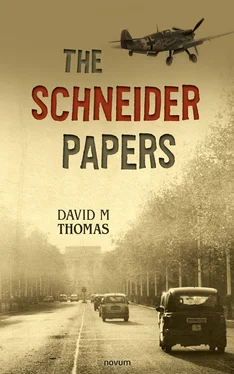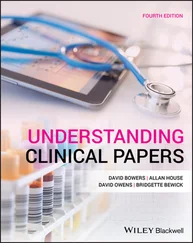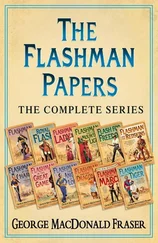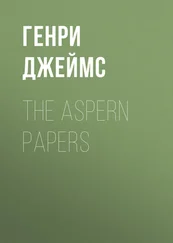In early 1936 War Office attitudes towards Germany began to diverge strongly from those held in the Foreign Office. Cartwright had been fighting, a now rear-guard action in committees, hand-to-hand combat, as he described it to a bemused non-partisan colleague. The War Office, egged on by Army Intelligence, became convinced that the Foreign Office and by implication the SIS and IRS were painting too black a picture of Herr Hitler. The War Office began to search for its own alternative foreign policy that would downplay the inevitability, according to the Foreign Office, of Anglo-German conflict.
The various War Office generated reports that came his way were flicked through to the ‘conclusion and recommendation’ section and sometimes thrown onto the floor or against the glass panes of the greenhouse, other times quietly placed down, followed by reflection and then sitting down at his desk, holding his head in his hands. The War Office began to echo some of the schemes already emanating from Downing Street for a policy of appeasement with Germany.
Chapter 2: 1932 Moscow: Ambassador Maisky
She stood at the window of the second floor apartment on Stoleshnikov Street, arms folded, waiting. A black sedan pulled up below the window. ‘It’s here,’ she said, turning her head, and as an afterthought, in a raised voice, ‘wear your brown coat.’ He stood in the foyer of the apartment. She helped him into his overcoat, turned him around to look at her, and helped him button up. She fussily brushed his shoulders with her hands and then the lapels of his coat. An automatic, affectionate maternal action. They kissed, cheek to cheek. Nothing was said. He nodded and smiled in acknowledgement and left.
It was early September 1932, and Ivan Mikhailovich Maisky, late of the Soviet Embassy in Helsinki, had been summoned to a meeting with Maxim Maksimovich Litvinov, his immediate boss and People’s Commissar of Foreign Affairs. He was the head of Soviet foreign policy, directly under the great leader himself, Joseph Vassarionovich. This meeting was held in Litvinov’s office, where they discussed, subject of course, to Stalin’s final approval, Maisky’s move to London as Soviet Ambassador to the Court of St. James’s.
The meeting was an important one. It concerned that tricky subject all diplomatic representatives abroad have to plan; how best to directly or indirectly fulfil their country’s hopes and ambitions within the host country.
Maisky was made privy to the apprehension within the Party to the immediate demise of the Weimar Republic and that the rise of Hitler was bound to introduce chaos on the international scene, thus threatening the social and industrial transformation of the Soviet Union. Indeed the motor car that had brought him to the People’s Commissariat for Foreign Affairs building was an American Ford Model ‘A’ sedan built under licence at a new factory at Nizhny Novgorod. Litvinov was aware of the distaste and hostility to Socialism amongst the British bourgeoisie and especially the land-owning aristocracy which governed Great Britain and its overseas colonies. He could not bring himself to describe them by the collective ‘the British Empire.’
Harsh reality dictated, as indeed needs must, a shift from the Soviet Union’s attempt to mobilise socialist solidarity and support for the Revolution among British Labour circles, to now court the class enemy, the Conservative Party – its natural antagonist.
Maisky proposed a plan of dealing with the coalition Government led by a Labour Party Prime Minister, but dominated by Conservative anti-Bolshevik elements. Maisky argued for a new, unconventional diplomatic strategy; particularly a deliberate wooing of the press, and a more personal diplomacy extending wider than the usual narrow circle of politicians and civil servants within Whitehall to include a number of lesser members of Government, prominent politicians, capitalists in the City, poets, writers and artists. A wide net indeed. This was revolutionary in its own right. It entailed the deliberate cultivation of the British Press and a more personable approach to prominent non-political figures. It would be an exercise in realpolitik before anyone else had thought of the term.
Ivan Mikhailovich Maisky was of Jewish Polish descent and had lived in the Golders Green district of north London in the 1910s, where he had first met Maxim Litvinov. Political exiles, just like refugees and immigrants from the same country, have a tendency to live on the same street or just round the corner from each other.
Maisky and his wife Agnya arrived by boat train at Dover in October 1932. He was quite unusual for an Ambassador, especially one from that bête noire that was Soviet Russia. He was 48 years old, short, portly, with a chevron style moustache and receding white speckled brown hair. He possessed an open honest face, was courteous, charming, spoke good English and was what the French would describe as très sympathique in nature. He could be someone’s favourite uncle. Maisky was also a clever man and a servant of Soviet Russia.
The Soviet desk at the Foreign Office wrote a memorandum noting the new Ambassador’s penchant for inviting a multifarious bag of newspaper editors, writers, intellectuals, trade unionists, Parliamentary back-benchers and Opposition Members of Parliament to his residence at Kensington Palace Gardens. This was all against normal diplomatic convention, and not how Ambassadors to the Court of St. James’s were supposed to conduct themselves. Most irregular. Highly irregular!
With the obvious exception of Viscount Rothermere, proprietor of the arch-conservative Daily Mail newspaper, Maisky courted Lord Beaverbrook, owner of the popular Daily Express, who became a friend. His newspaper editorials hailed Stalin as a defender of Soviet national interests, with the emphasis on equality as opposed to promulgator of international socialism. Nothing to worry about was the new media message.
Maisky was a generous man. Christmas presents from the Soviet embassy were particularly welcome. It was said that newspaper editors and lead writers received bottles of the finest vodka and jars of beluga sturgeon caviar. Other examples include Ivor Novello the music composer, actor and all-round thespian, who apparently received a gramophone recording of Leonid Utesov and his jazz band; Bertrand Russell the socialist philosopher was given a book of selected poems by Alexsey Khomyakov; and the General Secretary of the National Union of Railwaymen was very pleased with a glossy picture album of Soviet steam locomotives.
Robert Vansittart, the civil servant head of the Foreign Office, and Anthony Eden, a Member of Parliament, and in 1936 the Government head of the Foreign Office, were frequent guests of His Excellency the Ambassador and his wife at Kensington Palace Gardens. Their wives even came along, and after tea and cakes, the men would retire to the garden, weather permitting, and talk politics together, heads down, fingers wagging occasionally, making a point, whilst the ladies sat indoors discussing the latest fashion, weekend parties and restaurants.
Like Maisky, the other side, as it were, was using these seemingly social gatherings as sounding posts for the most crucial diplomatic issue of the decade: Germany. How to deal with her, and how to contain Hitler. Like Maisky, they were interested in a mutual-aid pact that would limit Hitler’s aggressive stance and expansionist ambitions. France had already signed an alliance with the Soviet Union. It wanted to bring Great Britain also into the fold. Problem was, if the British Government was to agree, then it wanted Germany included in the pact. However, at a Berlin cabinet meeting in September 1934 Hitler rejected the whole idea. Pacts and treaties were for the Führer to conceive, ergo decide whom to invite to his pacts and treaties.
Читать дальше












